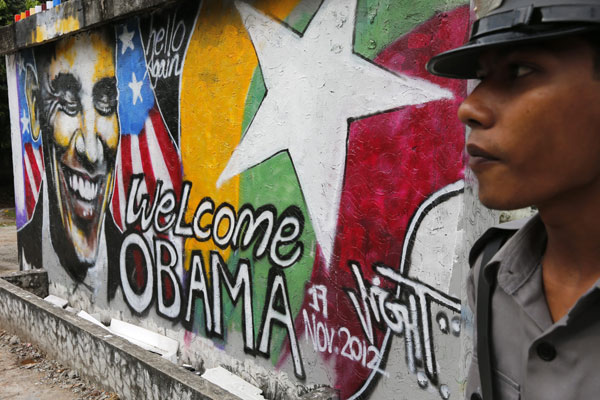“My advice to the U.S. government: Go slow and retain as much leverage as you can,” said Amnesty International’s Frank Jannuzi when speaking at a recent Heritage event on reform in Burma.
Hosted by Walter Lohman, director of Heritage’s Asian Studies Center, the discussion also featured Thomas Malanowski of Human Rights Watch and Jared Genser of Perseus Strategies. The mood of the discussion was one of hope but also caution.
The speakers agreed that Burma is a bipartisan issue that has captured the attention of the last three American Presidents. Members of both sides of the political spectrum have noted some key issues to be addressed as Burma continues with legal and political reforms. Future policy steps should acknowledge Burma’s human rights violations and failures to meet benchmarks while cautiously rewarding its successes.
In light of the Burmese government’s expedited reforms, the U.S. has extended its diplomatic hand toward Burma. But in removing sanctions as quickly and as broadly as it has, the Obama Admimistration risks moving too quickly. In particular, allowing Burma to participate in the multinational American- and Thai-led Cobra Gold military exercises, Jannuzi argued, “granted legitimacy to an army that has not earned it.” He also emphasized the need for an effective process for vetting the individual military personnel that the U.S. does engage.
All of the speakers agreed that Burma’s treatment of minority groups such as the Kachin and the Rohingya was a serious issue. But under the present construction of the 2008 Burmese constitution, minority groups are excluded from legal recourse. Malinowski also stressed the importance of maintaining and updating the list of Treasury’s “Specially Designated Individuals”—an account of unsavory Burmese characters individually subject to sanctions.
Genser, an attorney who once represented Aung San Suu Kyi, noted that Burmese understanding of the rule of law needs time to mature. “At present people see the law as a tool of repression rather than the protector of rights,” he noted. Burma needs an independent judiciary that actually executes justice. It needs to get absurd laws—such as ones that throw individuals in jail for 20 years for sending a single e-mail—off the books so that the judiciary is enforcing only reasonable laws.
While Burma is heading in the right direction, the U.S. should take more than just a passing glance at Burma’s immense human rights violations. The effectiveness of U.S. economic sanctions in Burma should not be underestimated, and the U.S. should be careful that it doesn’t reward Burma too quickly.
